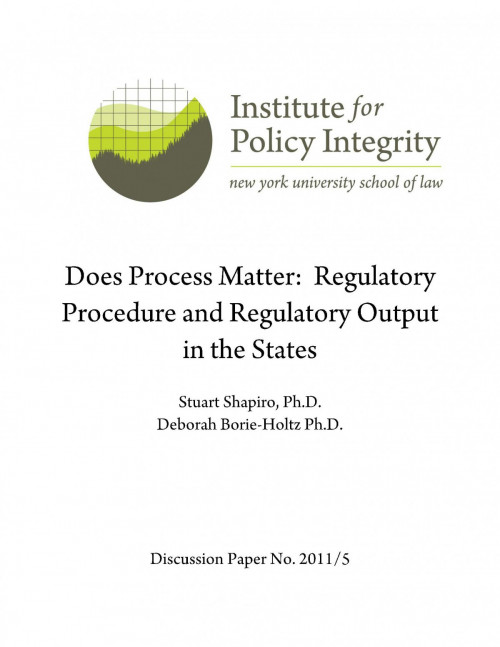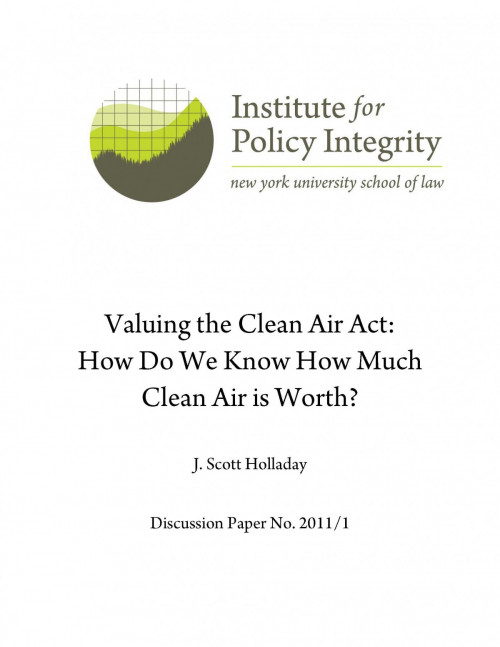-

Does Process Matter
Regulatory Procedure and Regulatory Output in the States
Rulemaking in the states has become much more widespread than it was when many state legislatures began to pass their administrative procedures acts more than 40 years ago. A wide diversity of rulemaking procedures presents a natural laboratory in which to study several questions that have long interested scholars of the regulatory process. This paper finds that the level of rulemaking is more closely correlated to the lawmaking activity in the state rather than proceduralization which suggests no disrespect for the law, as Churchill argued, but rather that the lawmakers themselves have given rise to the thousands of regulations in the states.
-

Can Cost-Benefit Analysis of Environmental Policy Go Global?
The use of cost-benefit analysis of environmental policy is spreading from the United States, where it has the longest tradition, to other parts of the globe. This paper discusses the challenges posed for cost-benefit analysis as it spreads, and how it can evolve to meet those challenges.
-
_200_175_90.jpg)
Prevailing Academic View on Compliance Flexibility under Section 111 of the Clean Air Act
EPA will soon propose performance standards under Section 111 of the Clean Air Act for greenhouse gas pollution. Many argue that to be effective and efficient, the standards should incorporate compliance flexibility. This repport finds widespread agreement in the academic community that § 111 authorizes the use of many types of flexible approaches.
-

Valuing the Clean Air Act
How Do We Know How Much Clean Air is Worth?
EPA recently released a study evaluating the costs and benefits of amendments to the Clean Air Act between 1990 and 2020 to see what cleaner air means for human health and the economy. Holladay’s analysis of EPA’s numbers shows that they’re based on sound science.
-
_110_170_90.jpg)
Regulatory Change and Optimal Transition Relief
Grandfathering has become a common practice in regulating industries like coal power generation. But it is not clear that phasing out polluting plants is beneficial. The costs of retrofitting existing plants to comply with new standard can be higher than the compliance costs for a new plant. Since the costs of shifting to new technology must be borne at some point, (since granfathering can’t be indefinite) it might be best not to grandfather at all so that society can benefit from lower pollution levels earlier. That’s just one of the arguments examined in this working paper.
Viewing all publications in Academic Articles/Working Papers
